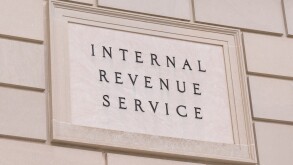The Bulgarian Ministry of Labour and Social Politics recently adopted an ordinance for employment-related electronic documents and the requirements for their creation and storage in an employee's file. The ordinance is effective as of May 19 2018 and is based on Article 128b, paragraph 3 of the Labour Code.
The new ordinance allows for an electronic file for an employee to be created and kept by the employer. Both parties are allowed to exchange electronic documents between them.
Employers that choose to create electronic files for their employees must follow specific technical requirements.
Documents that can be kept and stored electronically in employees files include:
Labour contracts;
Other documents with explicit agreement from both sides, such as contracts for amending of qualifications, job descriptions, orders, and notifications;
Documents created by employees, including applications and consents;
Documents created by third parties, including medical certificates, sick leave papers, validated notifications and references based on Article 62 of the Labour Code and documents issued by the National Revenue Agency.
The electronic documents can be created explicitly with the use of an electronic signature.
The regulation defines strict rules for electronic signatures, which can be used by employees to exchange documents, and ordinary, enhanced or qualified electronic signatures.
The employer must inform all employees that a procedure is to be implemented regarding the creation and storage of electronic documents in their files. Additionally, any exchange of electronic statements between the parties in a labour relationship must be agreed in writing.
Unilateral electronic documents created by the employer, as well as those requiring the mutual consent of both parties, must contain information on their author, the employer and the grounds for authorising said author.
The electronic statements are served through the 'electronic recommended email' service, and a confirmation receipt of date and hour is issued.
All electronic documents are stored in scanned format. The consistency between the scanned electronic image and the original document is proven by the electronic signature of the person who has scanned the documents.
An employee may request a transcript of documents in electronic or paper format, and the employer must fulfil the request within 14 days. Paper issuance of a scanned document should be authenticated by the handwritten signature of an authorised person.
Employers should be aware that the creation and storage of electronic documents is implemented through an information system supported by the employer. In addition to the compliance requirements, the provisions of the law include specific technical requirements such as: (i) two-factor identification; (ii) reporting the time of occurrence of the facts (accurate to the nearest second) via a qualified time certificate; (iii) historical reference to all operations; (iii) identification of persons and e-mail addresses from which the operations were performed; and (iv) receiving and sending documents through electronic recommended mail.
Eurofast strongly urges employers to consider their current practices, seek specialised assistance in developing new compliant approaches and ensure the prevention of accidental or unlawful destruction of documents and data, unauthorised access, and modification or dissemination of data.










